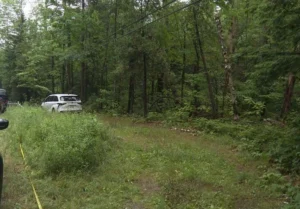On April 5, 2025, a wave of protests swept across the United States as citizens took to the streets to voice their opposition to President Donald Trump’s policies. The ‘Hands Off’ movement, which has gained significant traction nationwide, is a direct response to policies that protesters believe threaten fundamental rights, public programs, and civil liberties.
These protests, organized in all 50 states, mark one of the largest demonstrations in recent history, with thousands participating in major cities like New York, Los Angeles, Chicago, Philadelphia, and San Diego.
Table of Contents
Why Are People Protesting? Understanding the Core Issues
The ‘Hands Off’ protests are not just about a single policy; they represent a broader public outcry against multiple policy changes that affect millions of Americans. Below are the key issues driving the movement:
| Policy Issue | Reason for Protest | Who It Affects Most? |
|---|---|---|
| Social Security & Medicare | Proposed cuts threaten financial security for retirees and disabled individuals. | Seniors, disabled persons, low-income families |
| Immigration Crackdown | Stricter immigration laws lead to family separations and deportations. | Immigrants, asylum seekers, mixed-status families |
| Civil Rights Concerns | Policies affecting LGBTQ+ rights, voting access, and racial justice. | Minorities, LGBTQ+ community, voters in restrictive states |
| Environmental Rollbacks | Reduced regulations lead to increased pollution and climate risks. | Future generations, environmental activists, local communities |
Scope and Scale of the Protests: Largest Mobilization in Recent History
With over 1,100 protests nationwide, the ‘Hands Off’ movement has become one of the largest mass mobilizations in the U.S. in recent years. Protesters from different backgrounds—students, workers, senior citizens, and activists—are coming together to demand change.
Key Highlights from the Protests:
- San Diego: Protesters gathered at Civic Center Plaza with banners demanding “Hands Off Our Rights.”
- Philadelphia: A massive rally took place at City Hall, featuring speakers from civil rights organizations.
- New York City: Thousands marched through Manhattan, blocking key intersections to get their message across.
- Los Angeles & Chicago: Coordinated protests in major downtown areas led to peaceful demonstrations calling for policy reversals.
How the Hands Off Movement is Organizing Protests Nationwide
The movement has gained momentum through grassroots organizing and digital mobilization. Social media platforms, advocacy groups, and local community leaders have played a major role in spreading the message and bringing people together.
Key Organizations Behind the Movement:
- Indivisible – A progressive movement mobilizing citizens to influence policy decisions.
- Planned Parenthood – Advocating against restrictions on women’s healthcare.
- Human Rights Campaign – Fighting for LGBTQ+ rights and protections.
These organizations have been using Twitter, Facebook, and TikTok to coordinate protests and share real-time updates, increasing the visibility of the movement.
What Comes Next? Future Plans & Policy Demands
The ‘Hands Off’ protests are just the beginning. Organizers have announced plans for continued action, including:
- A national petition drive to demand Congress take action on key issues.
- Lobbying efforts to pressure state and federal representatives to oppose harmful policies.
- More protests and rallies in the coming months to keep the momentum going.
Political analysts believe that if the movement sustains its current energy, it could have a significant impact on upcoming elections.
Conclusion: Will the Movement Create Real Change?
The ‘Hands Off’ protests have sent a clear message to lawmakers and the Trump administration: Americans will not remain silent when policies threaten their rights and well-being.
While it remains to be seen how these protests will shape future policies, one thing is certain: public engagement and activism are at an all-time high, and this movement is likely to continue shaping the political landscape.





